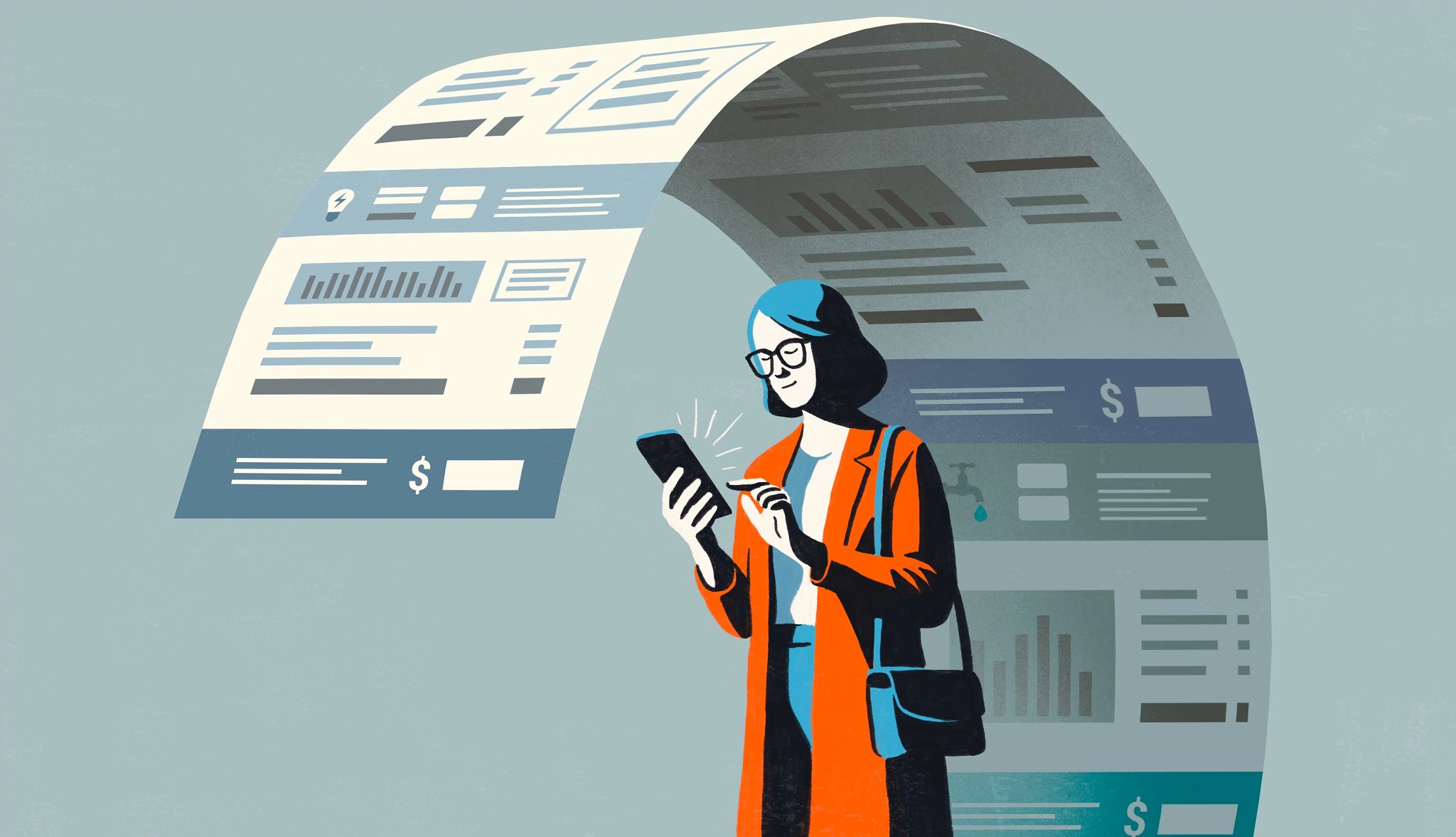
- Select a language for the TTS:
- UK English Female
- UK English Male
- US English Female
- US English Male
- Australian Female
- Australian Male
- Language selected: (auto detect) - EN
Play all audios:
Many older adults don't like to pay bills online, as evidenced by an October 2023 survey by digital billing company InvoiceCloud that found boomers have less confidence in using online
payment systems, such as mobile apps or their bank's website, than their younger counterparts. But there are a number of reasons to consider paying your bills online — perhaps most
notably, the ability to use auto-payment features. Setting up automatic payments can help ensure that your bills get paid on time, preventing late fees and dings to your credit. It can also
give you peace of mind knowing that payments by check won’t get lost in the mail — or worse, stolen from a mailbox and altered in a growing scam called check-washing. Rick Miller, a
financial planner and investment advisor at Miller Investment Management in Manassas, Virginia, worked with a client in her mid-70s whose Medicare supplement policy was canceled because she
missed payments while on vacation. It cost her about $250 more per year in premiums with another provider, since the old one wouldn’t take her back after the payment snafu. She also had to
pay at least $500 more out-of-pocket per year for prescriptions. “That’s not insignificant if you’re on a tight budget,” Miller says. Another reason to jump on the auto-payment wagon is if
you're experiencing cognitive decline. Unfortunately, sometimes family members don’t recognize that a relative is developing memory problems — and by the time they do, the financial
damage may already be done, in the form of late fees or missed payments recorded on credit reports. Enrolling in automatic payments can help prevent these issues, Miller says. WHICH BILLS
SHOULD YOU PUT ON AUTOPAY? Peter Hoglund, senior vice president and financial advisor in the Warren, New Jersey, office of Wealth Enhancement Group, recommends older adults set up automated
payments for recurring monthly bills, such as for cell phone service, auto loans, mortgages, homeowner's insurance and utilities. He also suggests arranging auto payments for life
insurance and long-term care insurance, since missed payments on these accounts could result in termination of the policies. But still take the time to review your monthly statements to make
sure there are no fraudulent charges, Hoglund recommends. HOW TO SET UP AUTOPAY You can create automatic payments through your bank's website or app. To get started, you'll
typically need a copy of your bill that shows your account number and the address where the payment is mailed. You may also be able to initiate auto payments directly with specific service
providers, such as your mobile phone carrier, insurance provider or electric company. But some financial professionals recommend relying on your bank for auto payments because many banks
employ heightened online security measures, such as monitoring for fraudulent or duplicate charges. If you arrange autopay with a service provider, watch out for fees. Some providers charge
transaction fees — typically 1 percent to 3 percent — if you make payments by credit card. (Banks don’t generally charge fees for automated payments.)





